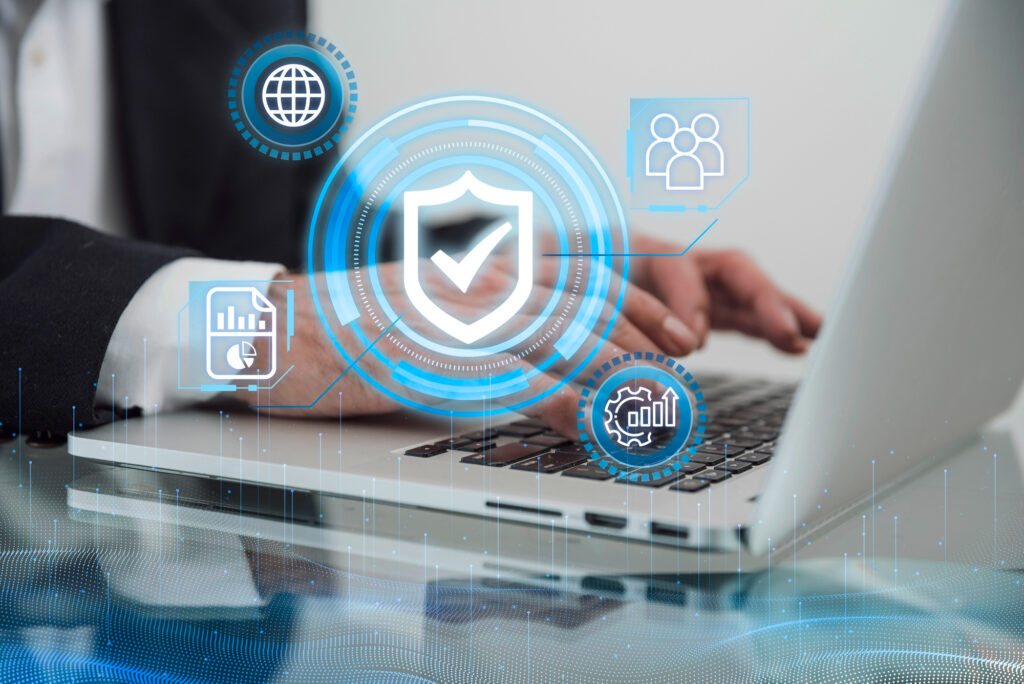In today’s digital age, our online presence has become an integral part of our daily lives. From social media to online banking, we rely on the internet for various tasks. However, the convenience of the digital world also brings with it the risk of cyber threats. Cyber hygiene, a set of practices and habits, plays a crucial role in keeping us safe online. In this article, we’ll explore the best practices for maintaining good cyber hygiene and reducing the risk of falling victim to cyberattacks.

What Is Cyber Hygiene?
Just as personal hygiene involves habits like washing your hands, brushing your teeth, and taking regular showers to stay physically healthy, cyber hygiene involves practices that help keep your digital life healthy and secure. It’s about maintaining a clean and safe digital environment.
The Importance of Cyber Hygiene
The internet is filled with cyber threats such as malware, phishing scams, ransomware, and identity theft. Cyber hygiene is essential for several reasons:
-
Protection from Cyberattacks: By practicing good cyber hygiene, you can significantly reduce the risk of falling victim to cyberattacks.
-
Data Privacy: Proper cyber hygiene helps protect your personal and sensitive data from unauthorized access.
-
Financial Security: Cyberattacks can lead to financial loss. By following cyber hygiene best practices, you can protect your financial information.
-
Reputation Management: A breach of your online accounts can damage your personal or professional reputation. Cyber hygiene helps mitigate such risks.
Cyber Hygiene Best Practices
Now, let’s explore the essential best practices for good cyber hygiene:
-
Strong, Unique Passwords:
- Use complex, long passwords that are difficult to guess.
- Avoid using easily guessable information like names, birthdays, or “password” itself.
- Consider using a password manager to keep track of your passwords securely.
-
Multi-Factor Authentication (MFA):
- Enable MFA wherever possible. It adds an extra layer of security by requiring more than just a password to access your accounts.
-
Regular Software Updates:
- Keep your operating system, software, and apps up to date. Updates often include security patches that fix vulnerabilities.
-
Safe Browsing Practices:
- Be cautious about the websites you visit. Stick to well-known, trusted sites.
- Look for the padlock symbol and “https” in the address bar to ensure a website is secure.
- Avoid clicking on suspicious links in emails or messages.
-
Email Safety:
- Be cautious of email attachments and links, especially if the sender is unknown or the email looks suspicious.
- Don’t open attachments from unverified sources.
-
Cybersecurity Training:
- Educate yourself about common cyber threats, such as phishing, and how to recognize and avoid them.
-
Secure Wi-Fi:
- Use strong passwords for your Wi-Fi networks to prevent unauthorized access.
- Change the default username and password on your router.
-
Regular Backups:
- Regularly back up your important data and files. This will protect you in case of data loss due to a cyberattack.
-
Social Media Privacy Settings:
- Review and adjust your social media privacy settings to control what information you share and who can see it.
-
Avoid Public Wi-Fi for Sensitive Tasks:
- Be cautious when using public Wi-Fi for sensitive tasks like online banking. If you must use public Wi-Fi, consider using a virtual private network (VPN) to encrypt your connection.
-
Mobile Device Security:
- Set a PIN or passcode on your mobile devices to protect them in case of loss or theft.
- Use remote tracking and wiping features to locate and secure your devices.
-
Regular Device Scans:
- Install reputable antivirus and anti-malware software and regularly scan your devices for threats.
-
Secure File Sharing:
- When sharing files or documents, use secure and trusted platforms, and avoid public file-sharing services.
-
Social Engineering Awareness:
- Be cautious of unsolicited phone calls or messages asking for personal information or money. Verify the identity of the caller or sender.
-
Personal Information Protection:
- Be mindful of the personal information you share online. Limit what you post on social media and websites.
-
Safe Online Shopping:
- Shop from reputable websites, use secure payment methods, and check for secure connections before entering payment information.
-
Data Encryption:
- Use encryption tools and services to protect sensitive data. Encrypt your emails and files when possible.
-
Reporting Suspicious Activity:
- If you encounter suspicious online activity, report it to the relevant authorities or organizations.
Cyber Hygiene in the Workplace
Good cyber hygiene is not limited to personal online activities. In the workplace, it’s equally important. Here are some additional best practices for maintaining cyber hygiene at work:
-
Security Policies: Follow your organization’s cybersecurity policies and guidelines.
-
Training: Participate in cybersecurity training and awareness programs offered by your employer.
-
Work Devices: Keep your work devices secure and follow the organization’s guidelines for device usage.
-
Phishing Awareness: Be extra cautious of phishing attempts in the workplace and report suspicious emails.
-
Data Protection: Safeguard sensitive company data and adhere to data protection regulations.
In Conclusion
Good cyber hygiene is essential for staying safe online, both in your personal life and at work. By following the best practices outlined above, you can reduce the risk of falling victim to cyberattacks and protect your personal and sensitive information. Remember that cybersecurity is an ongoing process, and staying vigilant is key to maintaining a safe and secure online presence.